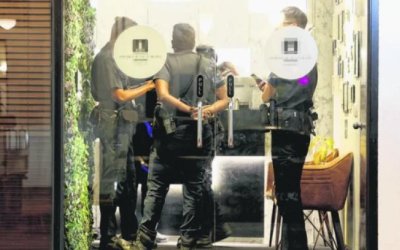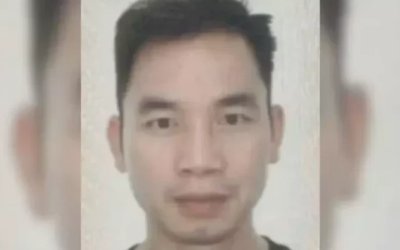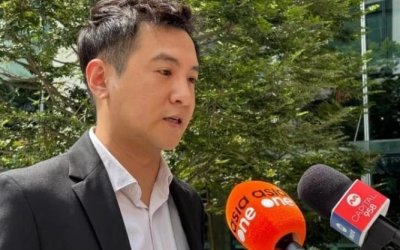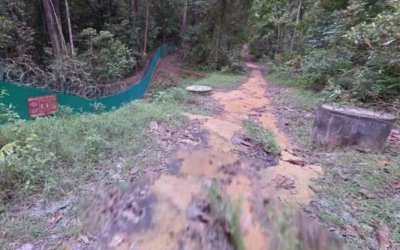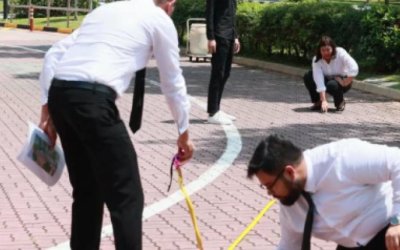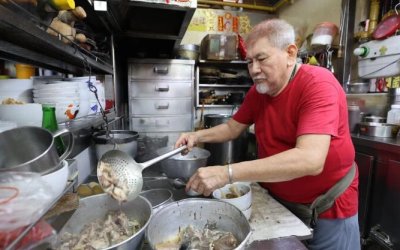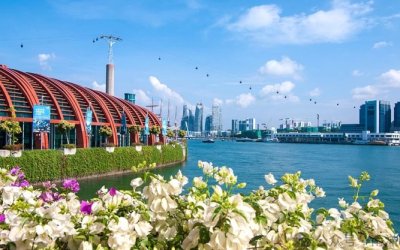2024年3月6日,新加坡官委議員賽義德哈倫醫生(Syed Harun Taha Alhabsyi)在國會建議通過體育和青年,促進社區包容、增強社會凝聚力。
以下內容為新加坡眼根據國會英文資料翻譯整理:
通過體育和青年實現包容性
哈倫醫生:主席,我重點談談體育和青年對於建設社區、促進包容性和增強社會凝聚力的價值。
首先談談體育。體育不只是鍛鍊身體那麼簡單。其價值是多方面的,除了保持身體健康,還包括心理、社會和經濟效益,對個人、社區甚至全球都有重要意義。除了讓我們保持健康和鍛鍊身體外,體育還能增加幸福感,促進社區團結,促進文化交流。更重要的是,體育具有激勵和凝聚的力量。
去年,珊蒂 (Shanti Pereira)在亞運會上拿下了100米銀牌和200米金牌,結束了新加坡等待田徑獎牌長達49年的歷史,當時許多新加坡人都在電視機前激動不已。我們對她在2023年的成功感到自豪,她的決心、韌性和戰勝逆境的精神都深深地影響了我們。還有2016年,約瑟林(Joseph Schooling)在奧運會上獲得100米蝶泳金牌的時候,國家自豪感也是一樣的。沒有什麼比慶祝同胞在體育運動中取得巨大成功更能凝聚人民、社區和國家的力量了。
獲得體育成功的門檻相對較低,因為體育無關人口眾多或地域廣闊。例如,以奧運會為例,人口不足4萬的列支敦斯登、不足3.5萬的聖馬利諾、不足6.5萬的百慕達這些小國,都曾在奧運會上拿過多枚獎牌。這完全是可能的。
我呼籲部門更加關注體育,將其作為團結人民、拉近人與人之間距離的手段。參與體育並持續參與的人都會同意,體育運動可以塑造品格、價值觀和某種韌性,這些是課堂上無法複製的。團體運動進一步培養了責任感、相互信任以及團隊合作意識。
就體育運動而言,我希望部門關注三個方面。
首先,作為一個國家,我們需要繼續投資於體育卓越,為我們的運動員做更多事情。我們的運動員需要我們的支持,他們為了國家的榮耀付出了很多努力。事實上,運動員的黃金時期正值同齡人建立職業生涯和賺取收入之時,他們卻要投入了更多時間刻苦磨鍊,以取得最佳狀態,有時甚至會受傷。只要有運動天賦,並願意和我們一起為體育卓越努力,我建議我們要不遺餘力地支持他們,讓他們為新加坡做出貢獻。
其次,我希望部門更深入具體地研究和關注團體體育。雖然我們已經有運動員個人成功的例子,但我們也需要在團體體育方面做得更好。要在團隊運動中培養青年才俊,確實需要更多深思熟慮的投資、數年甚至數十年的持續規劃,以及更廣泛的系統方法。在團體運動中,我們能夠看到個人的多樣性,看到來自不同社區的運動員共同為國家隊效力,這正是我們希望建立的新加坡形象。它與我們作為一個民族的共鳴更深,是我們所期待的社會願景。
第三,我希望部門能更好地闡述體育對普通新加坡人的價值,並幫助人們更多地參與其中。體育對健康和精神的福祉不容低估,應繼續在個人層面加以強調。只有每個人都參與、享受體育並在遊戲和活動中相互交流,才能實現體育運動的社會效益。即使是相對個人化的體育運動,只要有一定的創造性,也可以增加團結和凝聚力。例如,即使有些人可能更喜歡獨自一個人跑步,但也有一些跑步俱樂部,可以讓人們通過共同的興趣建立友誼、尋找共同點並結識新朋友。這種凝聚力和牢固的關係能夠持續推動人們參與體育運動,並有更多機會將人們聚集在一起。
我在本報告中強調的另一個重點領域是,繼續發揮我們青年的潛力。事實上,我們不久前在聖約瑟夫學院看到了相當年輕的觀眾,我們也經常談到我們的人口老齡化問題,這是一個非常重要的關切。然而,同樣的是,我們也面臨青年人數的相對減少,而他們是我們寶貴的資源。我認為,我們可以做得更好,吸引青年參與,發揮他們的創造力和創新力,並通過他們的視角來策劃各種想法,分享他們對於挑戰傳統智慧和當前解決方案的意願。這是我們國家建設工作的一個重要方面,也是政府推進」新加坡攜手前進「(Forward SG)計劃的一個重要方面。
在我與全國青年理事會合作開展的各項活動中,我們的青年關心新加坡發生的一切,關注新加坡的未來,並在建設一個更有愛心、凝聚力和包容性的社會方面有著深刻的共鳴。有鑒於此,我呼籲政府更廣泛地吸引不同社區和背景的青年,通過各種活動把他們聚集在一起,建立共同基礎、增進團結並塑造共同身份認同。
青年群體本身是多元的。如果我們考慮到那些年齡在15到35歲之間的年輕人,我們就需要更靈活地調整方法,以滿足青年在人生不同時期的廣泛興趣和不同優先事項。
即使新加坡全國青年理事會舉辦了各種活動,比如青年行動挑戰、青年變革者贈款以及各種青年小組,但我仍呼籲政府進一步研究這些活動的影響力,並確保在所有年齡段的年輕人中都能廣泛參與其中,因為我們需要投資於下一代新加坡人,賦予他們參與協作解決當前和未來社會挑戰的能力,共同為新加坡的未來做出貢獻。

以下是英文質詢內容:
Inclusivity through Sports and Youth
Dr Syed Harun Alhabsyi: Mr Chairman, I focus my cut on the value that sports and youths can bring to building community, promote inclusivity and strengthen social cohesion.
First, on sports. The value of sports is beyond the physical. Its value is multifaceted, encompassing also psychological, social and economic benefits, with its significance observed at all levels of society, too: at the individual, community and globally. Beyond the obvious benefits of health and exercise, sports has the power to strengthen well-being, unity in diversity and organic cultural exchange in communities. Importantly, sports has the power to galvanise and rally.
When Shanti Pereira won the Silver in 100-metre and Gold in 200-metre events at the Asian Games last year, ending Singapore's 49-year wait for a track and field medal, many Singaporeans were glued to their television screens and fixed to their seats. We were in awe of her success and achievements in 2023, and taken to her example in terms of her determination, resilience and ability to overcome adversity. When Joseph Schooling won the Olympic Gold in the 100-metre Butterfly in 2016, the sentiment of national pride was much the same. Few things rally people, community and a nation more than a celebration of a fellow countryman's great success in sports.
The barrier to entry to sporting success is relatively low in that it does not matter whether one is a populous country or a country with wide and sizeable geographical areas. For example, if we use the Olympics as a benchmark, Liechtenstein with a population of under 40,000, San Marino under 35,000, Bermuda under 65,000 have won multiple medals at the Olympics. It is, indeed, possible.
I urge the Ministry to look closely and more strongly at sports as a means to rally and bring people closer together. Those of us who have engaged in sports and continue to do so will agree that it builds character, values and a certain resilience that cannot be replicated in the classroom. Team sports further engender a spirit of responsibility, trust in others, camaraderie and a sense of team like no other.
There are three things that I hope the Ministry will focus on as part of this Budget, as far as sports is concerned.
First, we need to continue focusing and investing in sporting excellence as a country and do more for our athletes. Our athletes need our support to do well, for they spend a good portion of their hours, days and weeks, even years on end to achieve the success for the country. In fact, for a good portion of the time where their peers spend building careers and income, the prime of the young lives of these athletes are consumed in honing their sport, optimising their performance and pushing their physical bodies for peak outcomes, for which, sometimes, injuries can occur. Where there is talent in our Singaporeans and they are willing to go far with us in terms of their sporting excellence, I propose we spare no effort for them to give their best for Singapore.
Second, I hope for the Ministry to look more deeply and specifically at team sports. While we already have examples of success in individual sportsmen and sportswomen, we need to do better for team sports as well. It does take much more deliberate investment, a sustained care in the planning over years if not decades for the sport, and a wider systemic approach to develop young talent within a team sport. However, the benefit of being able to see a multiplicity of individuals in team sports, where we have a broad representation of athletes from all communities playing together for the national team, is emblematic of the kind of Singapore we hope to build. It resonates at a deeper level for us as a people and it becomes a palpable vision of the society we want for ourselves.
Third, I hope for the Ministry to narrate the value of Sports better for the ordinary Singaporean and help make it easy for people to participate in them en masse. The benefit of sports in health and mental well-being cannot be understated and should continue to be emphasised at the level of the individual. Yes. However, the societal benefit of sport can only be realised if everyone participates, enjoys and interacts with one another in play and activity. Even for relatively individual sports, it is possible, with some creativity, to encourage togetherness and cohesion in the activity. For example, even for the solitary activity of running, which some may prefer, there are running clubs where people may build friendships, find commonality and meet others through their collective joy and passion in the specific sport. Such cohesion and strong relationships make for a sustained participation in sports and more opportunity to bring people together.

